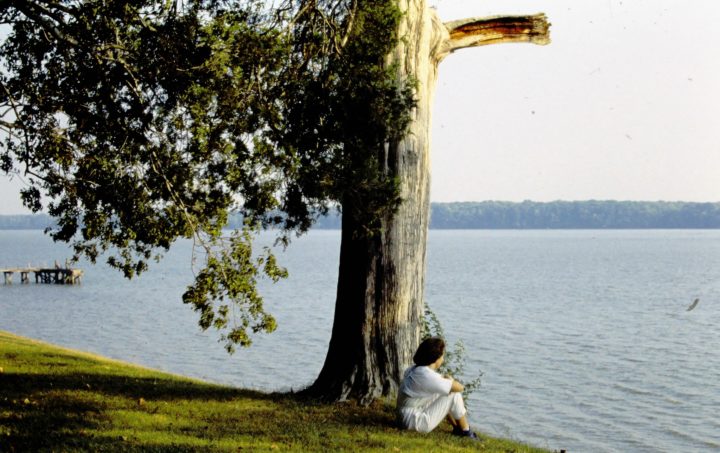It is now Day 10 since Susan and I confined ourselves in our apartment except for essential grocery runs. Like many of you, we keep touch with our family (in Seattle, New York and here in Austin) by FaceTime and texts.
As part of our morning quiet times, we have been reading some Lenten reflections by Scott Stoner. He writes about the courage to change: the courage to practice honest self-reflection, the courage to change direction, the courage to admit a mistake, and the courage to keep going and not backtrack once a decision is made.
We live in a time of crisis – for many of us the greatest crisis we have known in our lifetime. The dread of the Caronavirus is infecting the whole planet. Fear of the unknown, the absence of any cure, the panic that vital supplies may run out or that hospitals will be overwhelmed.
However long the crisis lasts, the world will never be quite the same. It cannot just be business as usual. Certainly, in this country the virus is revealing the stark disparities that exist in health care and income. Our interconnected global economic structure suddenly seems very fragile. On the positive side, the reduced human activity is already showing up in radically cleaner air and water in many places.

Fear is an essential survival instinct, but it can cause us to make bad strategic choices. Is it possible that, if we stand back from our fear, we can learn something from what we are experiencing as a global community? Can it bring us together rather than drive us apart? Can we overcome the lack of trust in our institutions or sources of information and the political polarization that threatens effective responses? We can only defeat this virus together.
What changes are we are called to make individually, nationally and globally? My Australian colleague Ron Lawler says that those of us in Western countries need to “take the exit off our hedonistic highway that undermines our value systems.” Will we have the courage to engage in self-reflection, to change direction where necessary, and to persevere in that new direction? What might we all do differently to build stronger ties of trust or to repair breaches in trust where it has been broken?
More than 30 years ago, at the start of our experience in Richmond, Virginia, I interviewed a diverse group of individuals in a city deeply divided by racism who had the courage to step beyond their fears, their pride, their prejudice or their hurt. The result of these interviews was a documentary, The Courage to Change. Richmond has evolved in the years since the documentary was made, but the human stories still stand out. Simple but difficult decisions were the foundations for a city-wide movement for healing and repair.
In my book Trustbuilding: An Honest Conversation on Race, Reconciliation, and Responsibility, I write: “Building trust is not a technique that can be taught; it is a spirit that is caught. It is the fruit of honesty and transparency of motive.” In Richmond we attempted to create spaces where honest conversation could occur. Honest conversation “touches us at our deepest point of motivation…it moves us to action because we relate to other people differently and choose different priorities in our lives. Our friendships, our interests, and our worldview are all deeply affected…People become connected and involved; the frustrated or disillusioned find hope; and the alienated see those on the opposite side in a new light.”
The demonstration of changed lives and changed relationships such as those in the documentary proved more powerful than engaging in exhaustive analysis of the problems or simply advocating for others to change.
In a collection of meditations on Happiness in this Life, Pope Francis says that God searches for men and women who are “capable of creating history, capable of feeling part of his people enough to work with the creativity of the Holy Spirit. He travels through our neighborhoods and along our roads. He peers into every corner in search of hearts that are ready to listen to his invitation.” I love this picture of God peering into corners and extending invitations.
It is my experience that in every community there are people inwardly prepared to take a new step of courage even if they do not know it themselves. They may be unexpected people. They may even be people who appear to be “the problem.” But perhaps one of the roles of trustbuilders is to cooperate with God in seeking out such individuals with the vision and belief that they have a special contribution to make.
